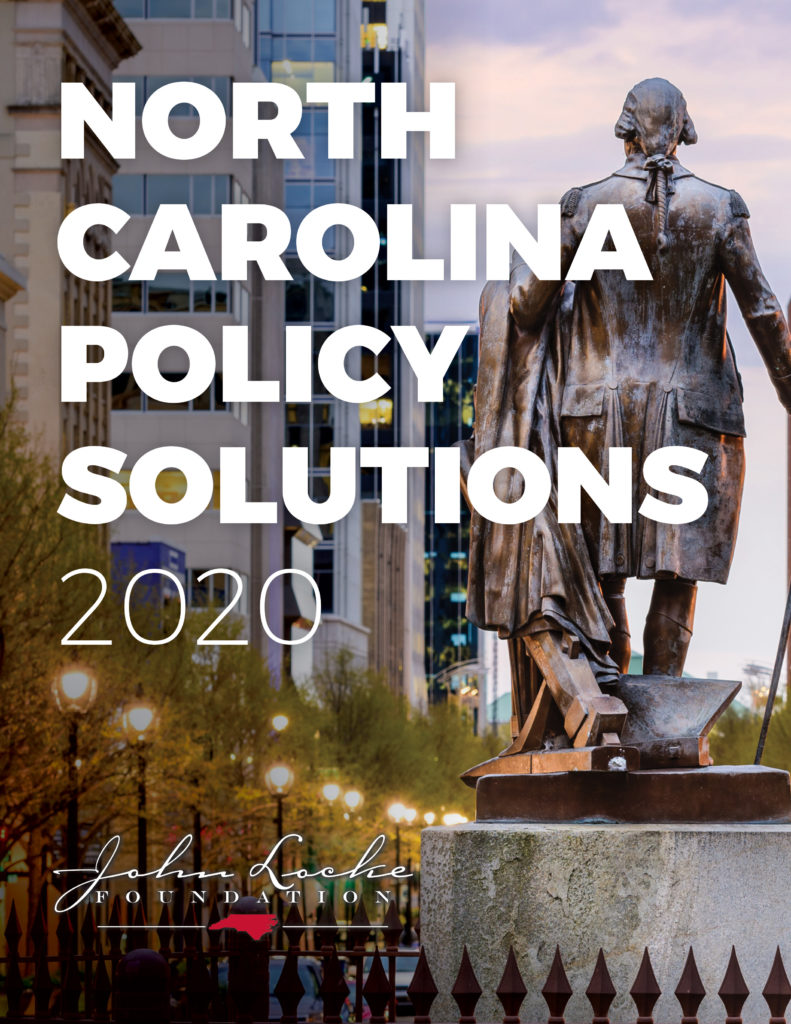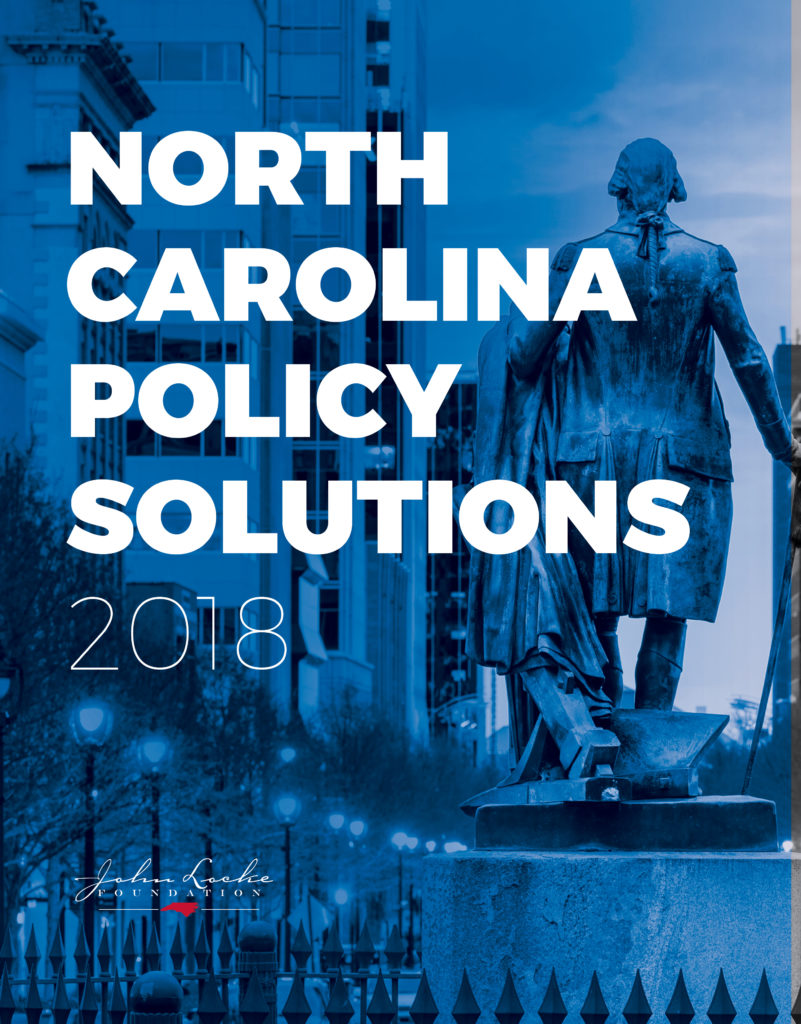Agenda 2008
A Candidate’s Guide to Key Issues in North Carolina Public Policy
Introduction
As we enter the 2008 campaign season, candidates for public o ce in North Carolina are faced with the daunting and possibly overwhelming task of developing informed positions on dozens of public policy issues. Agenda 2008 is part of an ongoing series begun a dozen years ago and published every two years by the John Locke Foundation. These reports are meant to provide a concise and easily digestible public policy guide for candidates for state and local offices in North Carolina.
In 1946 Henry Hazlitt wrote Economics in One Lesson, his now classic and timeless introduction to eco- nomics and economic policy. In writing the introduction to the “50th Anniversary” edition in 1996 (three years after Hazlitt’s death), Steve Forbes noted, “every tenet of the new economics that Hazlitt dispels continues today to rear its head in one form or another.” In comparing the topics and issues covered in Agenda 2008 to those covered in our previous reports, it is quite clear that the same could be said for the actions of North Carolina’s state government.
Most of the same topics that were covered in 2006 and even in 1996, when our rst Agenda was pub- lished, “continue to rear their ugly heads.” Concerns about misplaced spending priorities, high and increasing overall levels of spending, and a tax burden that punishes productive activities are continuing problems that plague North Carolina’s citizens. Education nance and performance, the abuse of private property rights through eminent domain and annexation, Medicaid, and economic development policy all continue to cry out for reform. Unfortunately, it appears that these issues, and too many others, will be a part of our Agenda concerns for years to come.
There are, however, several new issues for lawmakers to contend with. Agenda 2008 includes new sections re ecting these. Several were not even on the policy radar screen in 2006. These new sections re ect how changing events can shift the focus of policy makers in a matter of months or even weeks. New for Agenda 2008 are sections on:
- Energy
- Water and Drought
- TIF (Tax Increment Financing) Reform (Inspired by the Randy Parton Theatre debacle in Roanoke Rapids)
- Mental Health
- The Education Lottery
- Transparency (making information regarding government easily accessible to citizens )
What unifies the John Locke Foundation’s analysis of these issues is our fundamental commitment to free markets, private property rights, individual liberty, and limited government. The overarching goal of all of our recommendations is to advance these ideals. In doing so the citizens of North Carolina will not only be freer but also more prosperous.
Agenda 2008 is a joint effort of the policy analysts that make up the research sta at the John Locke Foundation, each of whom has special expertise in one or more of these elds.
Roy Cordato
Vice President for Research




